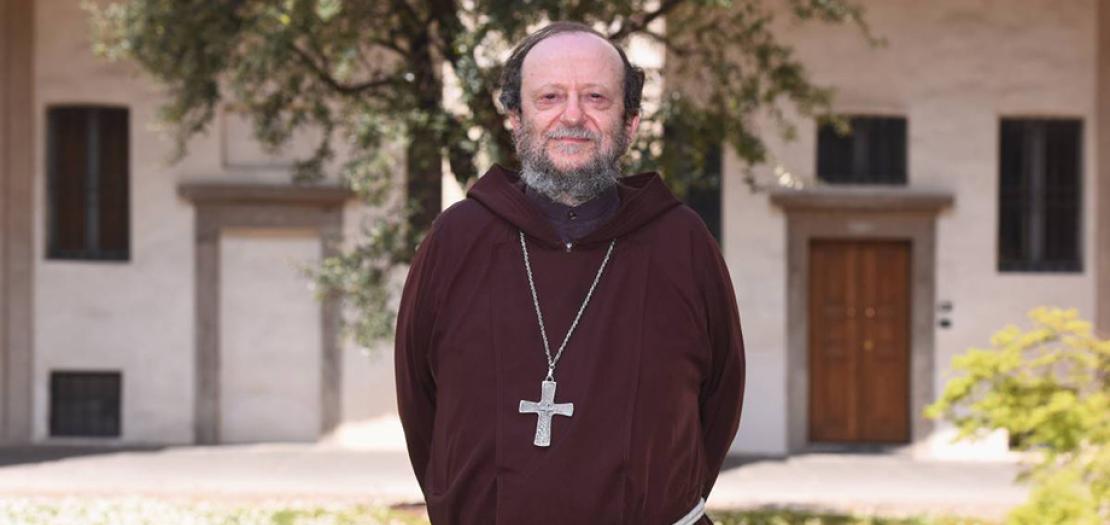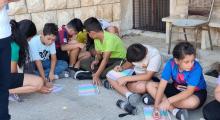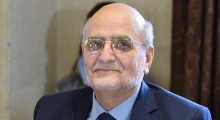Issued by the Catholic Center for Studies and Media - Jordan. Editor-in-chief Fr. Rif'at Bader - موقع أبونا abouna.org

The words of Pope Francis on the nuns killed in Yemen "a sign of great affection and closeness" to Christians and the entire population, as well as representing further "attention" to a nation tormented "by war". This is what Monsignor Paolo Martinelli stressed to AsiaNews, commenting on the pontiff's words at the last audience. The apostolic vicar of southern Arabia (United Arab Emirates, Oman and Yemen) is currently in Cyprus to participate in the symposium promoted by the Dicastery for the Oriental Churches from 20 to 23 April,, it is "significant" that he called them "by name" in the context of a "catechesis on the Christian meaning of martyrdom" because it helps to fully grasp "the sacrifice" making it a source of "hope, reconciliation and peace for the future". An important warning, in a phase that could prove decisive for the future in the aftermath of the resumption of relations between Riyadh and Tehran and the ongoing talks, with the exchange of prisoners, between the Saudis and the Houthi rebels. "We all hope," says Mgr. Martinelli, "that peace can be achieved" in order to facilitate the delivery of "humanitarian aid", adding that from the testimonies he himself has collected, the situation "is improving, although it remains delicate".
Following is the text of the interview with the Vicar of Arabia:
The resumption of relations between Riyadh and Tehran also seems likely to unblock the Yemen issue. Are there any prospects for peace, or at least a lasting truce?
[On the diplomatic front] I have also read these reports in the newspapers. We all hope that peace can be achieved and that all the humanitarian aid necessary for a resumption of normal life can arrive soon. From the direct news I receive, I have confirmation that concretely the situation is improving, although it still remains delicate.
What reports are reaching you from the country, especially from a humanitarian point of view?
There is still little news. What is known is that up to now some NGOs have been able to act amidst so many dangers. Caritas is also present in the area with some projects.
How are Christians in Yemen experiencing this new phase?
As we know, Christians have decreased a lot in these eight years of war. Many have had to leave Yemen because they no longer have work and it is dangerous for them to stay. A few have remained. Native Christians have generally remained, although it is not possible for us to give precise numbers. In any case, I would not yet speak of their 'return' in the strict sense, but rather of the beginning of a new process, and we look to the future with hope.
What is the value of Pope Francis' remembrance of the work of the Missionaries of Charity and their sacrifice of faith in Yemen?
It is a sign of great affection and closeness to the Christians and the entire population of Yemen. After all, Pope Francis had repeatedly, also in the past, shown his attention to this people long tormented by war. But this time it was very significant that the pontiff called these sisters by name, in the context of a catechesis on the Christian meaning of martyrdom as a supreme testimony of love. Moreover, this remembrance helps to understand the sacrifice of those sisters as a sign of hope, reconciliation and peace for the future.
Shortly after your appointment, you had recalled their courage in fidelity to the mission. One year on, do they still remain a source of inspiration and witness?
Certainly. As the Pope recalled, one does not kill in the name of God, but for God one can give one's life. And these nuns gave their lives. The gift they gave of their lives is a fundamental point of reference for all. They remind us that we are all called to bear witness to Christ and his love.
What do religious women represent in a missionary perspective? And how vivid is their memory today in Aden and among the Christians of the Vicariate?
For me, the testimony of the Missionary Sisters of Charity is fundamental. They show well what it means to be missionaries, avoiding all forms of proselytism, promoting works of charity and concrete closeness to the people. In our vicariate we celebrate every year in the masses the sisters who were killed in Yemen and their memory is alive in all the faithful.
There is still a presence of religious sisters in Yemen today. How is their work continuing?
Today we have two communities of the Missionary Sisters of Mother Teresa of Calcutta and they continue to perform the same service of charity, taking in sick and elderly people and serving them with love and dedication. The fact that they have remained despite what happened in 2016 is a great sign of love faithful to their mission. We talk to each other often. The last time we did so was on Angel Monday, and with them was the priest who serves in the community: we had a long conversation and prayed together.







